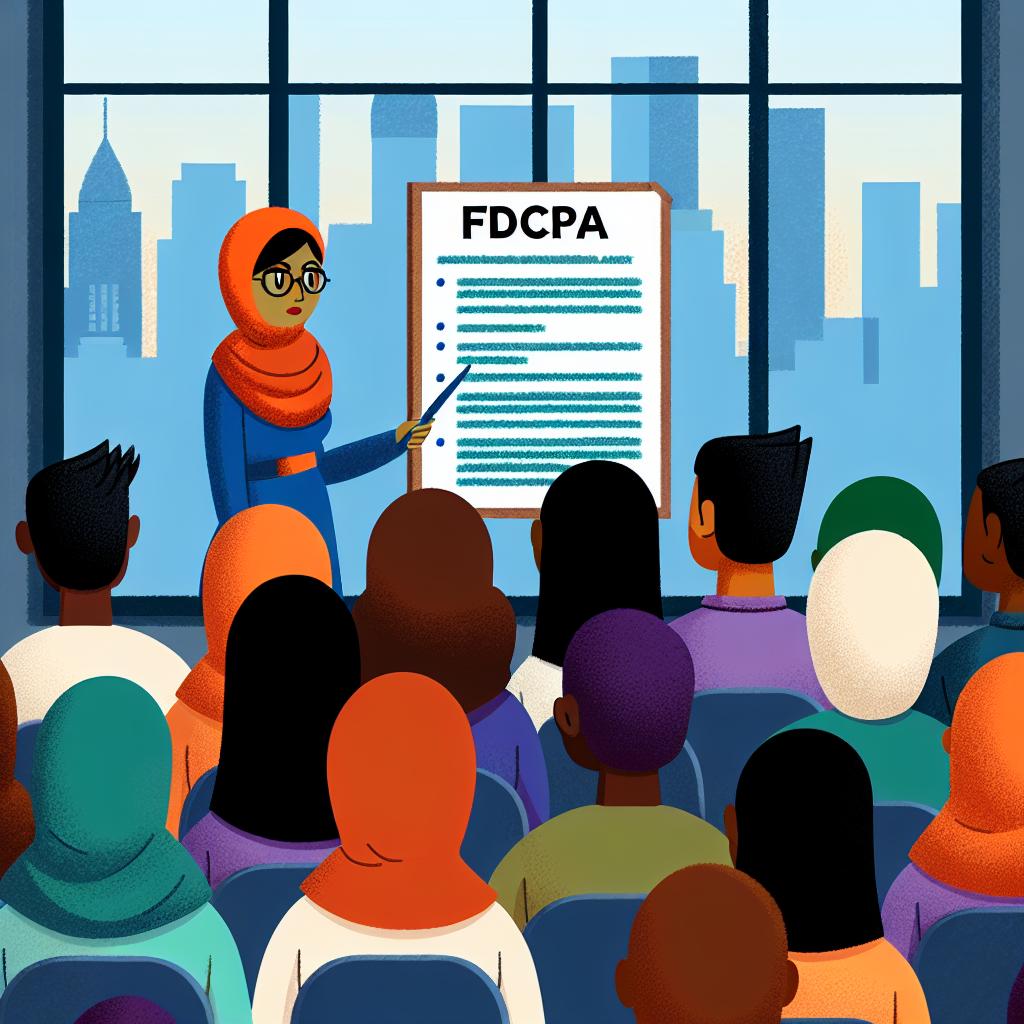Introduction to the Fair Debt Collection Practices Act (FDCPA)
The Fair Debt Collection Practices Act (FDCPA) is a cornerstone of consumer protection in the United States, crafted to shield individuals from abusive, deceptive, and unfair practices that can occur during debt collection processes. Enacted by the U.S. Congress in 1977, the FDCPA fundamentally transformed the landscape of debt collection by establishing clear guidelines and standards for both debt collectors and consumers. Administered primarily by the Federal Trade Commission (FTC), the Act serves as a vital resource for consumers, outlining their rights and providing a framework for holding debt collectors accountable when they violate legal protocols.
Who is Covered Under the FDCPA?
A key aspect of the FDCPA is identifying which parties are subject to its regulations. Its provisions are specifically directed at debt collectors, a term which encompasses a range of entities including third-party collection agencies, debt purchasers, and lawyers who, as part of their regular business, collect debts on behalf of others. Importantly, the FDCPA focuses on consumer debts, which are personal, family, or household debts such as credit card obligations, auto loans, medical bills, and mortgages. Notably, the Act does not extend its protections to business debts, thereby delineating a clear boundary on what types of financial obligations fall under its jurisdiction.
Consumer Rights Under the FDCPA
An essential component of the FDCPA is the delineation of consumer rights, ensuring individuals are equipped with tools and options to shield themselves from improper debt collection activities. Below are some of the core rights enshrined in the FDCPA:
Right to Information Verification: One of the foundational rights is the consumer’s ability to request detailed information regarding their debt. Debt collectors are mandated to provide clear documentation about the amount owed and the identity of the original creditor. Moreover, if a consumer disputes the debt, they can request a written verification, prompting the collector to substantiate the debt before pursuing further collection measures.
Right to Limit Communication: The FDCPA acknowledges the importance of protecting consumer privacy and peace of mind. Therefore, consumers can restrict communications from debt collectors, specifying acceptable times and places for contact. For example, if a consumer finds it inconvenient or embarrassing to receive calls at their place of employment, they can request that all communications are made elsewhere or during specific hours—a right that collectors must honor.
Right to Dispute a Debt: Consumers hold the right to contest a debt within 30 days of initial contact. This written dispute halts collection activities until the collector verifies the legitimacy of the claimed debt, ensuring consumers are not pursued for debts that are inaccurate or erroneous.
Right to Stop Communication: If a consumer so desires, they can formally request in writing for a debt collector to cease all communication. The debt collector must abide by this request but can still inform the consumer of any intended legal actions or confirm that such communications will cease—providing the consumer with peace and, potentially, the space to consider the next steps without ongoing collector interference.
Prohibited Practices Under the FDCPA
The FDCPA strictly prohibits specific actions by debt collectors that are deemed harassing, deceptive, or otherwise unfair. Recognizing these forbidden practices helps consumers identify when their rights have been violated:
Harassment or Abuse: Collectors are forbidden from engaging in conduct that could be construed as harassment or abuse. This prohibition includes the use of threats, the employment of obscene language, or persistent phone calls intended to annoy or wear down the consumer.
False or Misleading Representations: Debt collectors cannot mislead consumers by falsely presenting themselves as attorneys or threatening legal action that they are either unable or do not intend to take. Additionally, misrepresentations about the amount of the debt or its legal status are expressly prohibited.
Unfair Practices: Collectors are barred from employing unfair strategies such as demanding amounts beyond what is legally permitted or outlined in the contract. Moreover, they are not to deposit post-dated checks before the agreed-upon date, protecting consumers from premature or unauthorized transactions that could further entangle their financial positions.
Actions Consumers Can Take
When consumers feel that their rights under the FDCPA have been encroached upon, the Act outlines several courses of action they can pursue to rectify the situation:
Report Violations: One primary avenue for addressing violations is through reporting. Consumers can lodge formal complaints with the Federal Trade Commission or the Consumer Financial Protection Bureau (CFPB). These agencies can investigate the practices of debt collectors and take appropriate enforcement measures where necessary.
Legal Action: The FDCPA empowers consumers to take legal action against debt collectors who contravene its provisions. By pursuing a lawsuit in state or federal court, consumers can seek damages for the distress caused by unlawful collection practices. If successful, they may recover actual damages as well as statutory damages and legal fees.
Consult Legal Help: Given the complexities often associated with debt collection disputes, consulting a consumer rights attorney can be a prudent step. Legal professionals specializing in consumer protection can offer valuable advice, provide representation, and navigate the legal landscape, helping to ensure that consumers are effectively protected under the FDCPA.
Ultimately, the FDCPA stands as a formidable ally for consumers, offering a comprehensive array of protections and actions that serve to mitigate the potential harm and stress associated with debt collection. By understanding and leveraging these rights, consumers can more confidently manage interactions with debt collectors, ensuring they are treated fairly and with respect. It is crucial to maintain meticulous records of all communications with debt collectors and to act decisively to invoke one’s rights when necessary.
